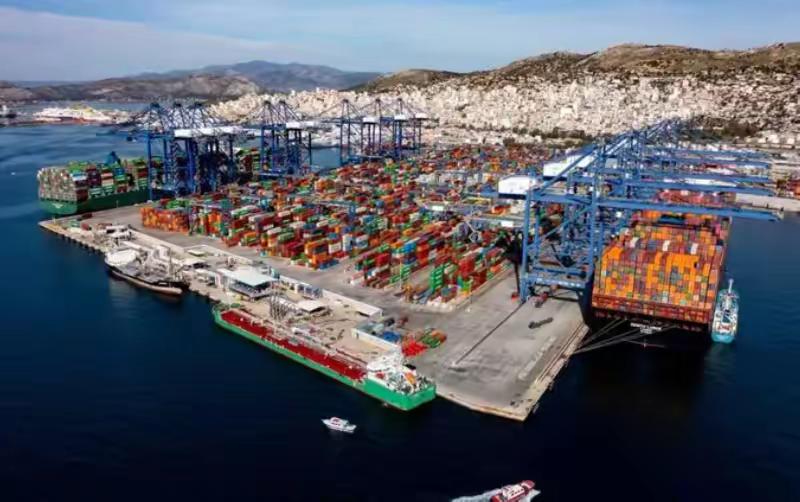
The current situation in the Middle East is experiencing a new round of turmoil. Since October 2024, the conflict between Palestine and Israel has continued to escalate, the Red Sea shipping crisis has been constantly intensifying, and the confrontation between Iran and Israel has suddenly intensified. This geopolitical crisis not only reshapes the power structure in the Middle East but also has a profound impact on the global energy market. International oil prices have stabilized at a high level of $85 per barrel amid intense fluctuations, and the price of natural gas in Europe has risen by 35% compared to the beginning of the year. In this complex energy game, China, as the world's largest energy importer, is maintaining national energy security and economic interests with its unique "balancing act".
The latest data shows that global crude oil supply has decreased by about 500,000 barrels per day in the first quarter of 2025 due to the Middle East conflict. The harassment of Red Sea shipping by the Houthi forces in Yemen has forced 12% of global trade routes to be rerouted, and the throughput of the Suez Canal has dropped by 40%. This disruption in the supply chain is directly reflected in energy prices: the price of Brent crude oil has experienced a sharp fluctuation from $78 to $92 and then to $85 within four months, and the cost of China's crude oil imports has increased by 18% year-on-year.
The more profound impact lies in the reconstruction of the energy trade pattern. Saudi Arabia is accelerating its "Look East" strategy, and its oil exports to China have risen to 27% in 2024; Russia is transporting more crude oil to China through the Arctic route, reducing transportation costs by 15%. At the same time, US shale oil producers are taking the opportunity to expand exports, and their global market share has rebounded to 18%. This diversified supply pattern objectively creates conditions for China to implement its energy balance strategy.
Among the various forces in the Middle East, China maintains a delicate balance. It has signed a comprehensive strategic partnership agreement with Saudi Arabia and successfully mediated the reconciliation between Iran and Saudi Arabia. It supports the Palestinian statehood claim while maintaining technological innovation cooperation with Israel. This non-aligned diplomatic wisdom makes China a partner that all parties in the region are willing to engage with.
Although the current strategy has achieved significant results, potential risks cannot be ignored. The escalation of US sanctions against Iran may affect 20% of China's crude oil imports, and the continuation of the Red Sea crisis will increase marine insurance costs by 30%. More importantly, the acceleration of the global energy transition may reduce the effectiveness of traditional energy diplomacy.
Facing these challenges, China needs to deepen its layout in three aspects: First, accelerate the construction of land-based energy channels with Central Asia and Russia to reduce reliance on sea transportation; second, expand cooperation in the new energy field, such as building the world's largest photovoltaic power station project in Saudi Arabia; finally, improve the commodity trading system denominated in RMB. Currently, the trading volume of Shanghai crude oil futures accounts for 21% of the global total, and this advantage needs to be further consolidated.
In the "world energy heartland" of the Middle East, China's balancing act demonstrates the wisdom of major country diplomacy. By building a diversified supply system, implementing flexible diplomatic policies, and improving reserve mechanisms, China is maintaining its energy security in the complex geopolitical game. However, it is also necessary to be clear that with the deep adjustment of the global energy landscape, this balance needs to keep pace with the times. In the future, China needs to better combine traditional energy security with the new energy revolution to navigate the uncertain international environment steadily and far. As a senior energy observer put it, "The greatest security in the energy game is not relying on a specific source, but having the freedom of choice." China is steadily moving forward on this path.

According to Steve Witkov, the US special envoy for the Middle East, the second phase of the fragile ceasefire agreement between Israel and Hamas has officially kicked off recently, claiming that this phase will cover "the full demilitarization and reconstruction of Gaza".
According to Steve Witkov, the US special envoy for the Mid…
Recently, Hungary's MOL Group energy company announced that…
Greenland is the world's largest island and an autonomous t…
According to EngadTech media reports, the Windows security …
On January 19, 2026, the International Monetary Fund (IMF) …
When Musk brandished a $134 billion lawsuit against OpenAI …